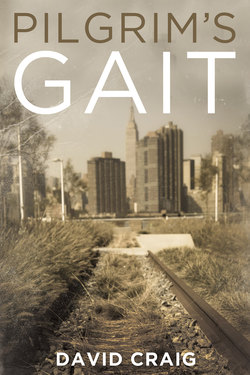Читать книгу Pilgrim’s Gait - David Craig - Страница 6
На сайте Литреса книга снята с продажи.
“Moment of Conscience”
Оглавление—Garabandal
1.
San Vicente de la Barquera: boat beached
in mid-river sand—the Catholic in Europe!
Not everything-in-its-Puritan-place;
but the thing, skewed, as place.
Garabandal grows out of the Cantabrians,
buildings squatting in irregular red stone, mortar—
though everyone we met was from somewhere else.
I felt like the Beach Boys, waiting for a wave:
“the moment of conscience,” with a woman
someone knew who’d married a brother
of one of the visionaries!
(It was labor intensive,
this waiting for God!)
I got to stand—the pillar said—where St. Michael
had stood! And later, as we prayed our rosaries
beneath the pines, hoping for the three o’clock
change: strange swirls of low grey clouds appeared,
God finger-painting, moving them
under higher slate; a whole new world
seemed in the offing.
(Jude, for his three year old Downs’ part,
chimed in with comedic “alleluias.”)
The appointed hour: nothing happened!
Nothing.
Wrong year.
2.
Many of those pilgrims dead now: sunny Erla,
wigged switch board operator—cancer;
a too-needy Frank, on his crutches; both with what
Fr. Peter had labeled “real problems.”
And he was almost right. Jude is life-raft,
yes. Who’s ever been happier just to run,
as awkward as time, though his pain
is real enough, seventeen years later:
never finding a face to suit his classmates,
or a girlfriend, or a talent in life.
I caught a soccer game, passing a bar:
their Monday Night football; and huge,
beautiful statues, two over-sized religious stores;
our theologian and his family
seeming to go to confession every hour
as the time neared.
I ran into Fr. Scadron—ex-Parisian
artist, Jew—the priest my wife
had just edited a book for.
(I wondered if he were real!)
The locals were used to it, the us of things:
one Garabandal woman, hanging laundry
as Jude played with her boy’s trucks in the dust,
me sitting on a nearby stone
next to an older Dutch guy, a man who knew
the minutiae of every apparition
everywhere—trying to situate himself
in the infinite know.
It was all anti-climax, which was only right—
because our lives are precisely that.
Each one brought Jesus with him to get there,
shared Him along the way. And though I know
Jude, seventeen years later, would still like
to be healed—to have a life like other people,
what could any of us, finally, have traded
for what we’d been given?
